Parasitism
Parasitism is a type of symbiotic relationship between two organisms where one organism, the parasite, benefits at the expense of the other organism, the host. The parasite derives nourishment and other benefits from the host, which is harmed in the process. This relationship is usually long-term and can have significant effects on both the parasite and the host.
Types of Parasites
There are different types of parasites, including:
- Endoparasites: These parasites live inside the host's body, such as intestinal worms.
- Ectoparasites: These parasites live on the external surface of the host's body, such as ticks and lice.
- Parasitoids: These organisms lay their eggs on or inside the host, and the larvae consume the host as they develop.
Adaptations of Parasites
Parasites have various adaptations that allow them to thrive in their host environment. These adaptations may include:
- Attachment mechanisms: Parasites have specialized structures or secretions that help them attach to the host's body.
- Ability to evade the host's immune system: Parasites have evolved mechanisms to avoid detection and destruction by the host's immune system.
- Reproductive strategies: Parasites have developed strategies to ensure the transmission of their offspring to new hosts.
Effects of Parasitism
Parasitism can have various effects on the host, including:
- Reduced fitness: Parasitized hosts may experience reduced growth, reproduction, or survival.
- Altered behavior: Some parasites can manipulate the behavior of their hosts to increase their own transmission success.
- Disease transmission: Certain parasites can transmit diseases to their hosts, leading to further complications.
Examples of Parasitism
Some common examples of parasitism include:
- Tapeworms in the intestines of animals.
- Mosquitoes feeding on the blood of animals.
- Parasitic plants, such as mistletoe, that obtain nutrients from their host plants.
Study Guide Questions
- Define parasitism and explain the roles of the parasite and the host in this relationship.
- Differentiate between endoparasites and ectoparasites, providing examples of each.
- Discuss two adaptations that parasites have evolved to thrive in their host environment.
- Explain how parasitism can impact the fitness and behavior of the host organism.
- Provide examples of parasitism in different ecological settings, such as terrestrial and aquatic environments.
[Parasitism] Related Worksheets and Study Guides:
.◂Science Worksheets and Study Guides Fourth Grade. Introduction to animals
Study Guide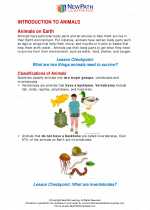 Introduction to animals
Introduction to animals  Worksheet/Answer key
Worksheet/Answer key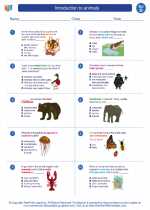 Introduction to animals
Introduction to animals  Worksheet/Answer key
Worksheet/Answer key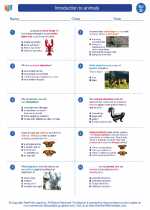 Introduction to animals
Introduction to animals  Worksheet/Answer key
Worksheet/Answer key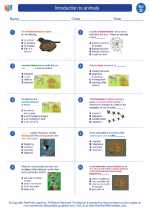 Introduction to animals
Introduction to animals  Vocabulary/Answer key
Vocabulary/Answer key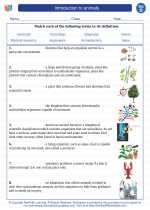 Introduction to animals
Introduction to animals  Vocabulary/Answer key
Vocabulary/Answer key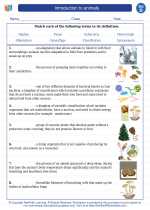 Introduction to animals
Introduction to animals  Vocabulary/Answer key
Vocabulary/Answer key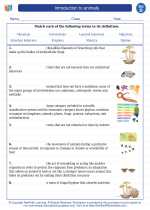 Introduction to animals
Introduction to animals  Vocabulary/Answer key
Vocabulary/Answer key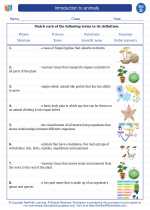 Introduction to animals
Introduction to animals 

 Worksheet/Answer key
Worksheet/Answer key
 Worksheet/Answer key
Worksheet/Answer key
 Worksheet/Answer key
Worksheet/Answer key
 Vocabulary/Answer key
Vocabulary/Answer key
 Vocabulary/Answer key
Vocabulary/Answer key
 Vocabulary/Answer key
Vocabulary/Answer key
 Vocabulary/Answer key
Vocabulary/Answer key

The resources above cover the following skills:
Concepts of Life Science (SC1, SC2, SC3)
The student demonstrates an understanding of how science explains changes in life forms over time, including genetics, heredity, the process of natural selection and biological evolution by showing the relationship between physical characteristics of Alaskan organisms and the environment in which they live.